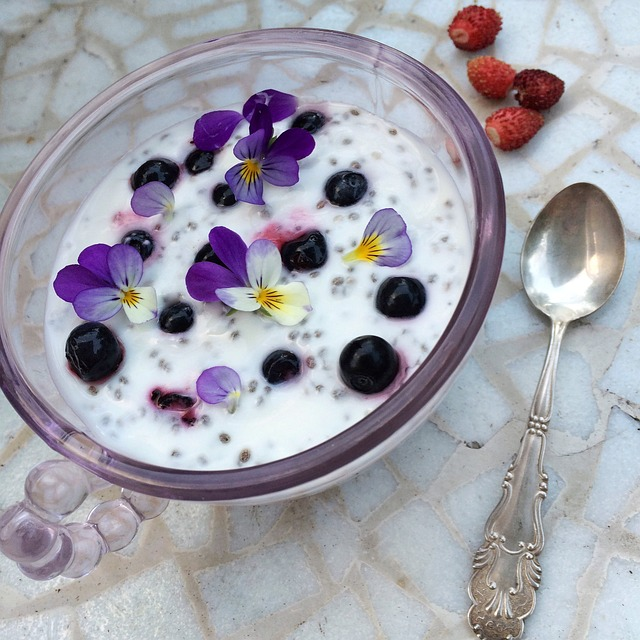10 Incredible Health Benefits of Blueberries
Blueberries are packed with impressive health benefits, ranging from fighting inflammation to reducing the risk of heart disease. Numerous studies have shown that eating blueberries can help support overall wellness, and today, we’ll be exploring 10 incredible rewards that blueberries can offer the body.
We will look at the impacts they can have on vision, cardiovascular health, digestion, and beyond. By the end of this article, you will be well-versed in the many health benefits of blueberries and why they should be a regular part of your diet.
So buckle up and get ready to explore all the wonderful things blueberries can do for you!
Nutritional Profile of Blueberries
Blueberries are a powerhouse of nutrition, offering a variety of health benefits due to their impressive array of vitamins, minerals, phytochemicals, and antioxidants. From improving heart health and lowering blood pressure, to helping control blood sugar levels and cholesterol, blueberries have proven health benefits that make them an invaluable part of any diet.
These tiny fruits are a great source of dietary fiber, essential nutrients, and natural sweetness. Eating blueberries can help improve insulin sensitivity, reduce the risk of metabolic syndrome, and may even help improve mental health. Blueberries are also high in antioxidants, which can help protect against age-related macular degeneration and other diseases.
Whether you opt for fresh, frozen, or cultivated blueberries, you can reap the nutritional benefits of blueberries by adding them to your daily diet. Enjoy them as a snack, add them to yogurt or cereal, or make blueberry pancakes or a blueberry smoothie for a delicious breakfast. Highbush blueberries are the most commonly available fresh variety, but you can also find wild or lowbush blueberries, which have twice the antioxidant capacity of ordinary blueberries.
Vitamins and Minerals
Blueberries are packed with essential vitamins and minerals that can boost your nutrition and protect you from various diseases. A one-cup serving of fresh blueberries provides 24% of the daily vitamin C needed, along with vitamin K and manganese. Vitamin C is essential for wound healing and boosts the immune system, while vitamin K helps with blood clotting and bone metabolism. Manganese is essential for glucose metabolism and helps to utilize vitamins and improve liver functions.
Iron, phosphorus, and trace amounts of calcium and zinc are also present in blueberries. Iron helps to make hemoglobin, which carries oxygen around the body. Phosphorus supports bone health, while calcium and zinc help maintain bone strength and elasticity.
The neurodegenerative diseases that affect brain function are linked to a lack of certain vitamins and minerals. Eating blueberries may help reduce the risk of these diseases due to their high levels of folate, which is three times more than that found in strawberries.
Antioxidants
Blueberries are rich in antioxidants, which protect cells from damage caused by free radicals. These antioxidants, such as anthocyanins and flavonoids, are responsible for the bright colors of blueberry juice. They’re widely researched for their protective properties, and are believed to reduce the signs of aging, the risk of cancer, and damage to DNA.
Antioxidants are naturally present in blueberries. Studies suggest these compounds can help reduce levels of oxidized LDL, a type of bad cholesterol. Eating blueberries can also help reduce arterial stiffness and improve blood flow. Wild blueberries have twice the antioxidant capacity of ordinary blueberries, so it’s worth seeking these out if you can. But if you’re looking for convenience, frozen berries are just as good. Frozen blueberries are picked at their peak ripeness, ensuring the most nutritional value. They are then frozen, preserving this beneficial nutrition. Plus, they’re usually cheaper than fresh berries (especially when they’re not in season), and there’s no added sugar.
No matter how you enjoy them, blueberries are a fantastic way to add a healthy boost to your diet. Enjoy them in a kale salad, a blueberry smoothie, or just by themselves for a sweet, satisfying snack. With all the vitamins, minerals, and antioxidants blueberries bring, you can’t go wrong with adding blueberries to your daily routine.
Support Healthy Aging
The consumption of blueberries has long been recognized as a natural remedy to help promote healthy aging. Eating these delicious berries is especially beneficial for older individuals, providing notable health benefits that can’t be ignored. Studies have shown that regularly consuming anthocyanins found in blueberries can reduce the risk of heart attack by 32%, while Vitamin C helps improve skin texture and reduce wrinkles like magic. Antioxidants also work their wonders to reduce inflammation, which is a leading driver of aging and cancer.
Blueberries are not only tasty, but they’re also incredibly nutritious! Eating them regularly can help with weight management and lower the risk of chronic diseases such as heart disease and diabetes due to their high levels of essential nutrients like iron, zinc, and calcium – all contributing to maintaining strength and elasticity in bones and joints. Plus, adding more fruits and vegetables into your diet could potentially decrease lifestyle-related health conditions including obesity, diabetes, or even heart disease – who knew?
The nutritional value of organic blueberries doesn’t stop there; drinking this juice can help improve cardiovascular health too! With their abundance of antioxidants and plant compounds, it increases nitric oxide production, which leads to improved overall heart health. And if that wasn’t enough already, research suggests that eating blueberries may even reduce the risk of age-related macular degeneration – an eye condition causing vision loss over time.
It’s clear that eating a small number of these little powerhouses every day provides numerous health benefits helping you stay fit & fabulous well into old age! Blueberries are one superfood you don’t want to miss out on!
Promote Heart Health
Blueberries are an amazing source of nutrition, but what makes them so special? Eating blueberries has been found to be a powerful weapon against heart disease, with the potential to lower blood pressure and improve circulation. A study published in the British Journal of Nutrition revealed that consuming two ounces (50 grams) of freeze-dried blueberries can reduce LDL (“bad”) cholesterol oxidation by 28%.
A US study on 93,600 nurses showed that those who had the highest anthocyanin intake were 32% less likely to experience heart attacks than those with the lowest intake. Anthocyanins are responsible for giving blueberries their deep blue color and also help protect our bodies from oxidative damage – a major risk factor for heart disease. They work to prevent bad LDL cholesterol from oxidizing, which helps reduce atherosclerosis risk.
In 2015, postmenopausal women with elevated blood pressure consumed a daily dose of blueberry powder supplement for 8 weeks – resulting in a significant decrease in systolic blood pressure compared to the control group! In another study involving 32 obese people suffering from insulin resistance, drinking two smoothies made out of fresh blueberries every day improved their insulin sensitivity significantly. This highlights how regular consumption of this superfood can benefit us greatly! Blueberries contain nitric oxide which helps improve blood flow and circulation throughout our body too!
The natural sweetness makes these berries an excellent alternative to other sugary treats without compromising on taste or health benefits. Studies have shown that eating one cup per day reduces your risk of developing heart diseases by up 15%, while reducing type 2 diabetes risks by 7%. Another 100 adults aged 45-75 saw improvements in glucose metabolism after consuming half a cup dried blueberries daily – plus reduced levels of metabolic syndrome markers as well!
To sum it up: Blueberries provide notable health benefits for our hearts; they reduce the risk factors associated with heart disease and improve brain function too! Eating them regularly lowers bad LDL cholesterol oxidation and increases nitric oxide production – helping relax our vessels and improving overall circulation. So make sure you add some deliciousness into your diet today – your body will thank you later!
Improve Memory
Consuming blueberries can be a boon for your brain. Studies have revealed that blueberries, their juice, and supplements can help improve memory and motor coordination. This is due to the high levels of antioxidants in blueberries, which protect and strengthen connections between neurons, making communication easier.
Anthocyanins found in blueberries also modulate pathways involved in inflammation and cell survival while enhancing neuroplasticity and neuroprotective properties – helping to protect the brain from damage. A 2011 study published in the Journal of Agricultural and Food Chemistry showed that consuming blueberry juice every day for 12 weeks by nine older adults with mild cognitive impairment significantly improved several markers of brain function including memory, executive function, and psychomotor speed – as well as reducing depressive symptoms!
A 6-year study involving over 16,000 older individuals has recently revealed a connection between delayed mental aging and consumption of flavonoid-rich foods such as blueberries or strawberries. The results suggest that flavonoids can delay mental aging by up to 2.5 years! Furthermore, 11 studies involving blueberry supplements found that cognitive benefits included improved memory, executive function & psychomotor function too!
In conclusion, Blueberry consumption has been linked to improved memory & motor coordination; decreased risk of cognitive problems; fighting against neurodegenerative diseases; reduced depressive symptoms; delayed mental aging; plus enhanced memory & executive/psychomotor functions – so consuming them daily could have a positive impact on your cognitive health!
Manage Cholesterol
The health benefits of blueberries are remarkable. Eating them daily can help manage cholesterol levels and reduce the risk of cardiovascular diseases. How? Blueberries contain phytosterols, plant-based compounds that lower LDL levels. This helps prevent cholesterol from building up in the body, thus reducing the risk of heart attack or stroke.
Plus, blueberries have soluble fiber which removes bile composed of cholesterol from our bodies’ waste – lowering circulating cholesterol in our blood. And they’re rich in antioxidants too! These benefits improve insulin sensitivity and protect against metabolic syndrome and other illnesses.
In short, eating blueberries is a powerful tool for helping to lower cholesterol levels and protecting your long-term health – especially if you’re living with type 2 diabetes! So why not add some deliciousness to your diet today?
Help Regulate Blood Sugar

Blueberries are well known for their many health benefits, especially when it comes to regulating blood sugar levels. Eating blueberries as part of a low-fat diet can be beneficial for those looking to improve their overall health and manage their blood sugar levels – particularly those with diabetes. Studies have found that eating blueberries can help increase insulin sensitivity, reduce fasting blood sugar levels by almost one third, and decrease the risk of developing type 2 diabetes in people who are obese and have insulin resistance.
The secret behind these impressive results lies in the high amounts of anthocyanins and flavonoids present in blueberries. Anthocyanins give them their dark blue color and work to improve insulin sensitivity while flavonoids aid glucose metabolism in diabetics. But there’s more! Blueberries also promote heart health, boost memory power, maintain eye health… the list goes on!
In a placebo-controlled clinical trial, it was discovered that when accompanied by a low fat diet, eating blueberries could elevate blood sugar levels – plus they produce nitric oxide which helps relax the blood vessels and lower your BP too! Not only this, but they also help with clotting issues as well as bone health maintenance.
To sum up: Blueberries are an incredibly healthy food choice offering numerous benefits such as improved insulin sensitivity, reduced risk of type 2 diabetes development & controlled blood sugar levels – all thanks to antioxidants like anthocyanins & flavonoids!
Maintain Eye Health
The nutritional profile of blueberries is like a superfood for your eyes. Packed with vitamins, minerals and antioxidants, they provide numerous benefits to the eyes. Improved blood and oxygen flow? Check! Antioxidant protection against free radical damage? You bet! Vitamin C helps deliver essential nutrients to keep your pet healthy.
Elderly people can also benefit from blueberries’ antioxidant protection and improved circulation – helping maintain healthy eyes and skin by reducing wrinkles and keeping it hydrated. Plus, increased nutrient delivery and improved circulation help reduce strain on the eyes while protecting them from infections or other eye-related conditions.
In short, blueberries are an amazing choice for maintaining eye health – delivering essential nutrients, improving blood flow, protecting against free radicals… you name it! So why not give your vision a boost today?
Alleviate Gastrointestinal Issues
Eating blueberries can do wonders for your health – but how? From alleviating gastrointestinal issues to protecting cells from damage, blueberries offer a range of benefits.
For those with digestive disorders, consuming frozen blueberries can help maintain a healthy digestive tract. That’s because they’re high in fibre and antioxidants, making them an excellent source of nutrition. Plus, their blood-thinning properties can cause a delay in healing surgical wounds – so it’s important to consult with a doctor before eating large quantities if you’ve had surgery recently.
Blueberries also have anti-inflammatory and anti-apoptotic properties that can help with non-alcoholic fatty liver disease. Their antioxidants protect cells from free radical damage while inhibiting tumor growth and reducing inflammation throughout the body.
Finally, their high fibre content helps regulate digestion and relieve constipation too! Eating just one cup of frozen blueberries is enough to keep your digestive system running smoothly and aid nutrient absorption as well.
In short, blueberries are packed full of nutrients that make them great for your health! They alleviate gastrointestinal issues, protect cells from damage, inhibit tumor growth… plus they help keep your digestion regular too!
Fight Urinary Tract Infections
The natural compounds found in blueberries have long been known to help fight urinary tract infections (UTIs). UTIs are caused by an accumulation of bacteria in the bladder, leading to painful and uncomfortable symptoms such as burning and frequent urination. But don’t worry – blueberries can come to the rescue!
Vitamin C helps boost your immune system, while tannins are plant compounds that inhibit bacterial growth. Plus, proanthocyanidins stop bacteria from attaching to the bladder walls and multiplying. Blueberries also reduce inflammation, protecting your bladder from damage caused by bacteria.
So why not add some delicious blueberries into your diet? Not only do they help fight UTIs, but their antioxidants, vitamins, and minerals promote overall health and wellbeing too!
Boost Immunity and Strengthen Muscles
Blueberries are well-known for their health benefits, especially when it comes to heart health. But did you know they can also strengthen your immunity and help with muscle recovery? Packed with flavonoids – a type of antioxidant that repairs cell damage and boosts the immune response – blueberries have been proven to increase production of white blood cells and reduce inflammation.
A recent study involving 10 female athletes revealed that eating blueberries accelerated muscle recovery after strenuous leg exercises. Eating them in food form or as supplements minimized muscle soreness and improved performance.
Other foods rich in antioxidants are beneficial too: they fight off illnesses by reducing inflammation, providing energy, easing digestion, and fighting infection.
It’s clear that eating blueberries or taking blueberry supplements offers numerous health benefits – from boosting immunity to aiding in muscle recovery!
Summary
Blueberries are a nutritional powerhouse that are rich in vitamins, minerals, phytochemicals, dietary fiber, and antioxidants. These naturally occurring compounds can help protect the body from various diseases, improve cognitive function, support healthy aging, manage cholesterol levels, help regulate blood sugar, maintain eye health, reduce gastrointestinal issues, fight urinary tract infections, boost immunity, and aid muscle recovery.
Blueberries are an easy to include superfood that can have a real and lasting impact on a person’s health. Eating these sweet little powerhouses regularly is an excellent way to protect your body from chronic illnesses, aging, and other issues.
With their impressive range of benefits, it is easy to see why blueberries are seen as a ‘superfood’ – both inside and outside of the health and nutrition world. Not only are they tasty and versatile, but they come packed with protective nutrients that lend themselves to a long and healthy life.
Frequently Asked Questions
What happens if i eat blueberries everyday?
Eating blueberries everyday can offer numerous health benefits, including reducing disease risk, maintaining heart health, and reducing blood pressure.
With all the scientific evidence of its many advantages, it’s easy to see why adding blueberries to your daily routine is worthwhile.
What are the 10 benefits of blueberries?
Discover the impressive health benefits of blueberries – from boosting heart health and improving gut health to aiding in diabetes management and reducing the risk of cancer.
Eating just one cup of blueberries daily can provide significant health benefits.
What do blueberries do for your body?
Blueberries are high in antioxidants, vitamins and minerals which can benefit many aspects of health. They are known to help reduce levels of bad cholesterol, support strong bones, improve memory and provide anti-inflammatory properties that can help protect against conditions like diabetes and cancer.
Studies have shown that blueberries can help reduce the risk of heart disease, stroke, and other cardiovascular diseases. They are also known to help improve vision and reduce the risk of cataracts.
How many blueberries should i eat a day?
Eating blueberries every day can provide many health benefits. According to 8 Health Benefits Of Blueberries from Holland & Barrett, it is recommended to consume 1-2 cups of blueberries each day for optimal health.
Therefore, you should eat about 1-2 cups of blueberries a day.
Are blueberries good for your skin?
Yes, blueberries are good for your skin. They are rich in antioxidant and nutrient content which may help reduce inflammation, fade away blemishes, even out complexion and brighten skin.
Adding one or two cups of blueberries to your daily diet can give you positive visible results in a few months.















